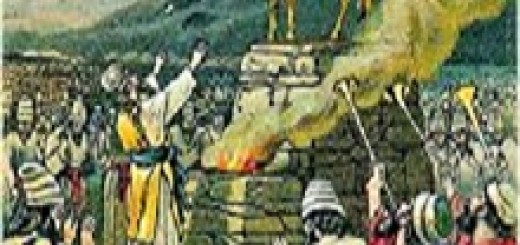By Avner Friedmann
The Parsha states[1]: “You shall be a holy people for Me; do not eat the flesh of an animal that has been mauled to death in the field (a treifah – טרפה), but throw it to the dogs.” A treifah is a kosher animal or cattle that has been wounded and is not expected to survive the year. The meat of such an animal is not kosher and we are forbidden to consume it.
So what should we do if we have it in our possession? Rashi states that to show our gratitude to the dogs for not barking when we left Egypt, we should reward them with it, as it is written,[2] “No dog shall sharpen its tongue against any of the Children of Israel, neither to man nor beast, so that you shall know that HaShem distinguishes between Egypt and Israel.” The dogs were silent during the night of the redemption from Egypt. Therefore, whenever possible, we show our appreciation by throwing the forbidden meat in our possession to them.
Nothing is outside the scope of HaShem’s awareness, as the Mishna states:[3] “Know what is above you-a seeing eye, a listening ear, and all your deeds are recorded in the Book.” The Midrash [4] states that the Holy One, blessed is He, does not withhold the reward from any creature. For not having barked once, the dog receives its reward repeatedly throughout history. If this is the case, then surely the level of reward we receive for doing a single mitzvah or learning some Torah each day must be unfathomable.
Moreover, the dog receives its rewards in this world. However the reward we receive for doing mitzvot and learning Torah is eternal, and is reserved for the eternal world – the World to Come.
The Malbim[5] offers an additional reason for giving this meat to the dog. This is because the dog guards a person’s flock and other possessions. As such, his master is responsible to feed him. Since the responsibility of the dog is to save the sheep and cattle from being attacked by predators, which renders them treifah, it is only appropriate that when an animal does becomes treifah the master should feed it to his dog.
However, the Malbim then poses a question: Animals do not possess free choice. As such, rewards and punishments do not apply to them. Since their actions are completely based upon their inborn instincts, why should they be rewarded altogether? He answers that HaShem instructed us to reward the dog not for the sake of the dog, but to teach us to be grateful and to show our gratitude.
We learn that our character traits are influenced not only by our minds, but by our emotions and feelings too. Intellectually, we may not recognize the logic of showing gratitude to creatures or objects that are incapable of appreciating it. However, emotionally, we are inclined to express our gratitude to whomever or whatever has benefited us, regardless of whether it is logical or not. If, for whatever reason, we do not show this gratitude, the result could be that there will be a lacking in our feelings and emotions. This may be detrimental to our overall ability to feel and express gratitude.[6]
Thus, being grateful is fundamental to our service of HaShem. It develops feelings of gladness and joy within us (simchah), which are of utmost importance in our service of G-d, because it brings us closer to HaShem. Through this we learn to appreciate HaShem’s tremendous kindness for us every moment of the day. It is so important to always try to develop gratitude in our thoughts, speech and actions, because, in many ways, gratitude is the key to the ultimate pleasure of knowing HaShem, with the true and complete redemption, when Moshiach comes. May this come about speedily in our days, Amen.[7]
[1]Exodus 22:30.
[2] Exodus 11:7.
[3] Ethics of the Fathers 2:1.
[4] Mechilta, Mishpatim 195.
[5] Rabbi Meir Leibush (1809-1879) On 22:30.
[6] Letter from Eliyahu, Vol. 3, page 100-101.
[7] Ibid.





















